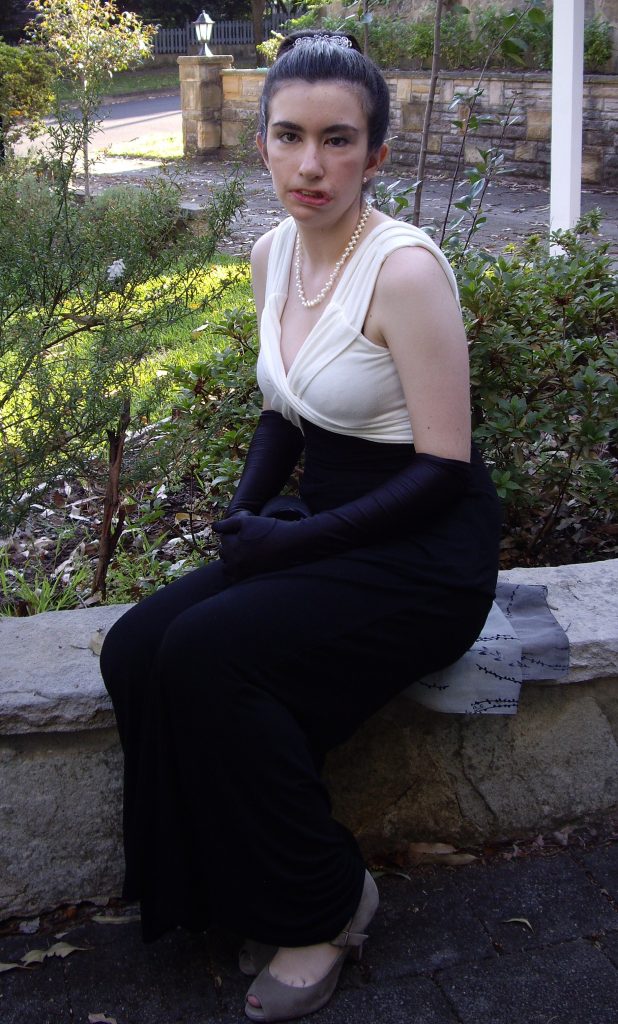When I was in my final year of high school, there was a big deal made about the formal, or “prom”. You had to buy a new dress. You had to get your makeup and hair done. And you had to arrive complete with a partner and a corsage.
As a seventeen-year-old very much influenced by peer pressure, I felt that was what I needed to “be someone,” to be “beautiful.” I wore a pretty old-school dress, complete with gloves and pearls, I had my makeup and hair done at home, and I was accompanied by my neighbour’s son, whom I’d met just a couple of weeks before (and who, I’m pretty sure, was coerced by his mum into going with me). I had the dress, the hair, the partner. I was a success!
Looking back on that, I realise how fickle our society is in the emphasis it gives to external beauty and worth. Sure, the formal night is just one night of the year, but it reflects the general pressure placed especially on young women in our society to “look good” – looking beautiful means being successful, having many friends and having a boyfriend or at least a guy who won’t run away when he sees you.
I know a fair bit about what it means not to be beautiful. I was born with Moebius Syndrome, which is an extremely rare neurological condition causing facial paralysis, low muscle tone, and other things (plus, I’m very excited to share that the annual Moebius Syndrome Awareness Day is coming up on January 24). There have been challenges and really hard times, but my life has been so blessed and enriched not just “in spite” of my paralysis, but because of it. Plus, I must admit, because of my paralysis, I have a really awesome wink!
Something Moebius Syndrome has given me is a deep awareness of beauty. I’d like to share with you three things that I’ve learned about beauty and its connection with worth and value.
First, beauty is subjective. Sure, our society dictates certain “beauty rules,” so to speak. A symmetrical face is pretty high up there on the beauty list, so I’m quite a rebel in that area! I have learned during my life that what is beautiful to someone else may not be beautiful to me, and vice versa, because my life and my experiences inform my own perceptions of what beauty is.
Second, beauty goes deeper than the skin. One of the greatest gifts Moebius Syndrome has given me is that it’s brought me in contact with many people I wouldn’t have met otherwise – some of these people have Moebius, some have other forms of paralysis. These people might not conform to society’s beauty rules, but to me they are beautiful people. When I think about the most beautiful person I know, I don’t think so much about their exterior beauty, but about their kindness, generosity, great sense of humour, openness, compassion, and confidence to be themselves. For me, it’s those qualities above anything else that make them beautiful.
Finally, it was quite recently that I recognised that while I’m not beautiful by society’s standards, I am beautiful by God’s standards. So, what are God’s beauty standards?
All of God’s creation is incredibly unique and beautiful to Him. You are beautiful to God, and you were beautiful to Him even before you were born. God doesn’t create ugly things, nor does He make mistakes; I know that was really hard for me to come to believe and accept about myself! God knew that the world would be a better place by you being in it just as you are.
You might look at yourself and wish you were taller, shorter, bigger, smaller, had brown hair or blue eyes or less freckles. You might look at your family or friends and think “I wish I were like them.” But that’s not how God made you. God loves you as you are and God made you as you are, so you could live and love Him and others in your own unique, beautiful, special way.
Because it’s true – you are uniquely, incredibly, unrepeatably beautiful.
Sr Sophie Boffa csfn is a Junior Sister of the Holy Family of Nazareth.
For more information about the Sisters of the Holy Family of Nazareth, go to: www.csfn.org.au









